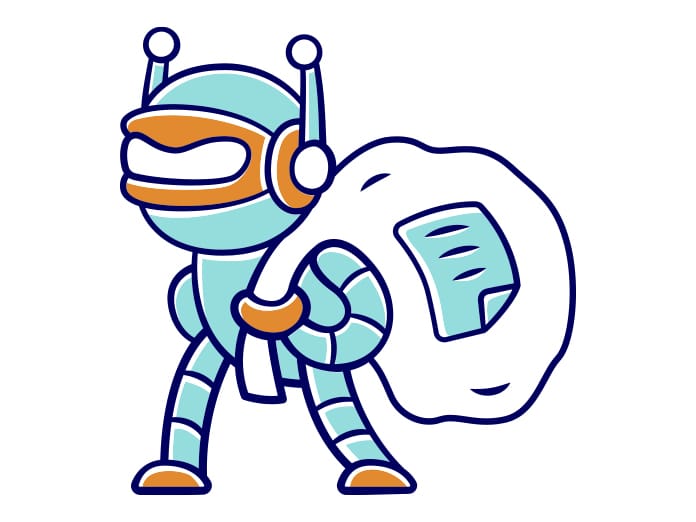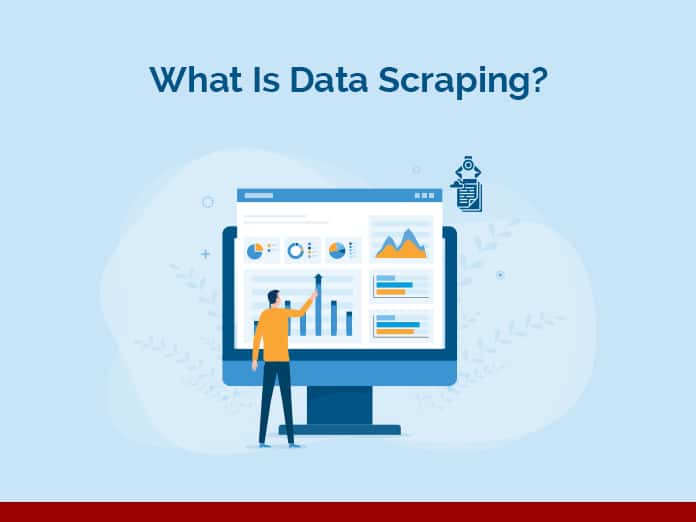The process of importing information from a website into a spreadsheet or local file stored on your computer is called data scraping, also known as web scraping.
It’s one of the most effective ways of getting information from the internet and, in some cases, integrating that information to another website. Common data scraping uses include:
- Research for eCommerce content
- Pricing comparison
- Sales and marketing data by crawling public data source’
- Data for educational research
Jump to Section
Data Scraping
Data scraping is defined as data gathering and then scraping. It explicitly collects data from a page or a website.

Notice that scraping information not only extracts data from the web; it gathers it from wherever the information resides. It may include spreadsheets, storage devices, etc., anywhere data of any form is present.
In order to filter and isolate various kinds of raw data from different sources into something accessible and informative, this process is important. Scraping data is much more reliable than crawling data for what it collects. It can take things out and make it harder to get information, such as commodity prices. One of the minor annoyances of data scraping is that it can result in duplicate information because this is not removed from the different sources from which the data is collected by the system.
What is Web Scraping Bot?
The method of using bots to collect information and data from a website is Web scraping.
Web scraping removes underlying HTML code and, with it, data stored in a database, unlike screen scraping, which only copies pixels displayed onscreen. The scraper will then recreate the whole content of the website elsewhere.

In a number of digital businesses that depend on data harvesting, web scraping is used.
Application of Scraping Bot
- Data Scraping bots, analyzing its content and then ranking it
- Price comparison sites deploying scraping bots to auto-fetch prices
- Fetch product description for seller websites
- Pull data using scraping bot for market research
Website scraping is also used for illegal purposes, including price undercutting and piracy of content that is copyrighted. An online entity targeted by a scraper can suffer significant financial losses, especially if it is a company that relies heavily on competitive pricing models or content delivery deals.
How Does Data Scraper Work?
Web pages are constructed using text-based markup languages (HTML and XHTML) and often contain a wealth of useful text-form data. Most web pages, however, are intended for human end-users and not for the ease of automated use. Because of this, tool kits have been developed that scrape web material. An API or method to access data from a web site is a web scraper. Companies such as Amazon AWS and Google provide end-users with cost-free site scraping software, resources, and public data.
Listening to data feeds from web servers requires new ways of web scraping. For instance, between the client and the webserver, JSON is widely used as a transport storage mechanism.
In order to simulate the human processing that occurs when viewing a web page to automatically extract useful details, companies have recently developed web scraping systems that rely on DOM parsing, computer vision and natural language processing techniques.
Usually, large websites use protective algorithms to protect their data from web scrapers and restrict the amount of requests that can be submitted by an IP or IP network. This has created an ongoing battle between developers of websites and scraping developers.
Methods Used for Scraping
Data scraping is done by using a piece of code to extract the html from the website’s URL, or sometimes to simulate visiting the website (therefore, since web scraping can slow down the output of a site, you sometimes see ‘I am not a robot’ click through). It’s not an illegal practice, but it’s a way to save a lot of man hours digging through specific websites and a lot of money compared to a human data scraper-even though there’s a lot of it working on less difficult tasks, too.
Without comprehensive coding expertise, there are many simple existing services that allow any user to extract information. There are a number of web browser add-on extensions, including Data Scraper and Web Scraper for Chrome, and Outwit Hub for Firefox, that allow for automatic data extraction.
There are also desktop applications that, like Monarch, Spinn3r and Parsehub, allow data scraping. Each extension has its advantages and disadvantages, but it is up to you the service you believe would be more suitable for the assignment at hand.
Nearly every programming language can be used to perform data scraping for more advanced programmers who want to capture the information themselves.
Application of Data Scraping
Data/Web scraping is an important tool for online companies as it allows vast amounts of data to be accessed easily and comprehensively. Both the users and developers of the site profit from being able to extract information efficiently.
There Are Several Uses for Web Scraping, Depending on How You Use It:
- To gather all information from different websites on a certain subject in order to store it in one main database for evaluation (big data)
- By effectively applying a rule to review this website for the number of occurrences of a certain term, to identify those patterns in data or internet use.
- To monitor websites for social media and create data collections about what is trending.
- For example, if an Amazon user is looking for books by a particular author, data scraping allows the easy display of requested information to extract relevant information for the customer.
The ethical concept of data scraping is somewhat debated. The question that is often asked: is accessing and processing online information ethically sound? Knowing where the line stands between scraping and hacking can be tricky, but any information found online is likely public.
Instead of the act of scraping itself, the use of the data obtained may be of greater concern. It would be frowned upon to receive emails from some sites on the internet to then spam them with your business or services, and often businesses with web pages are exposed to several emails that do not even provide a service they are interested in. Then, the scraped information may be sold to those who continue the loop.
- LinkedIn Scraper | LinkedIn Data Extractor Software Tool - February 22, 2021
- Is Web Scraping Legal? - February 15, 2021
- What Is Data Scraping? - February 10, 2021

